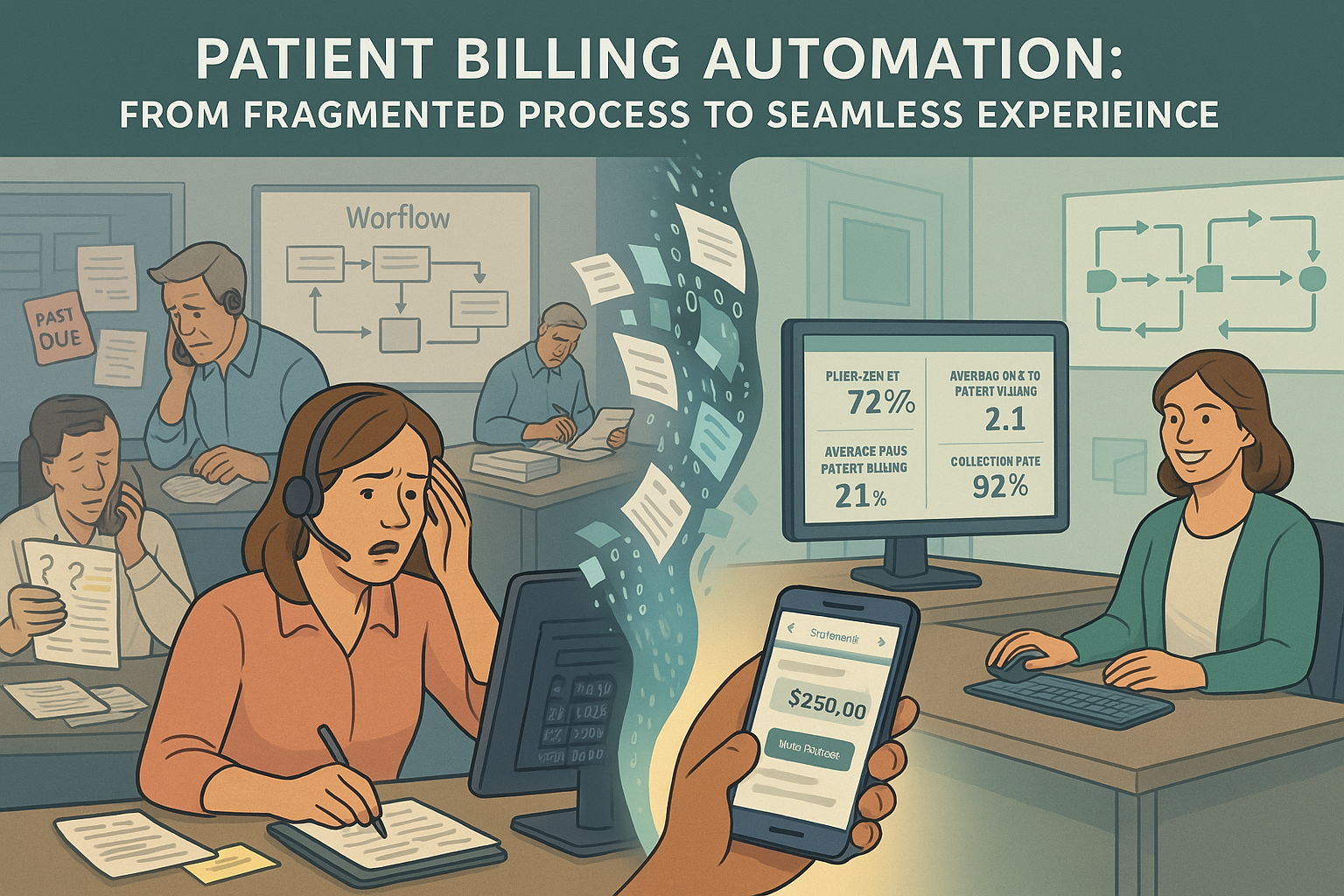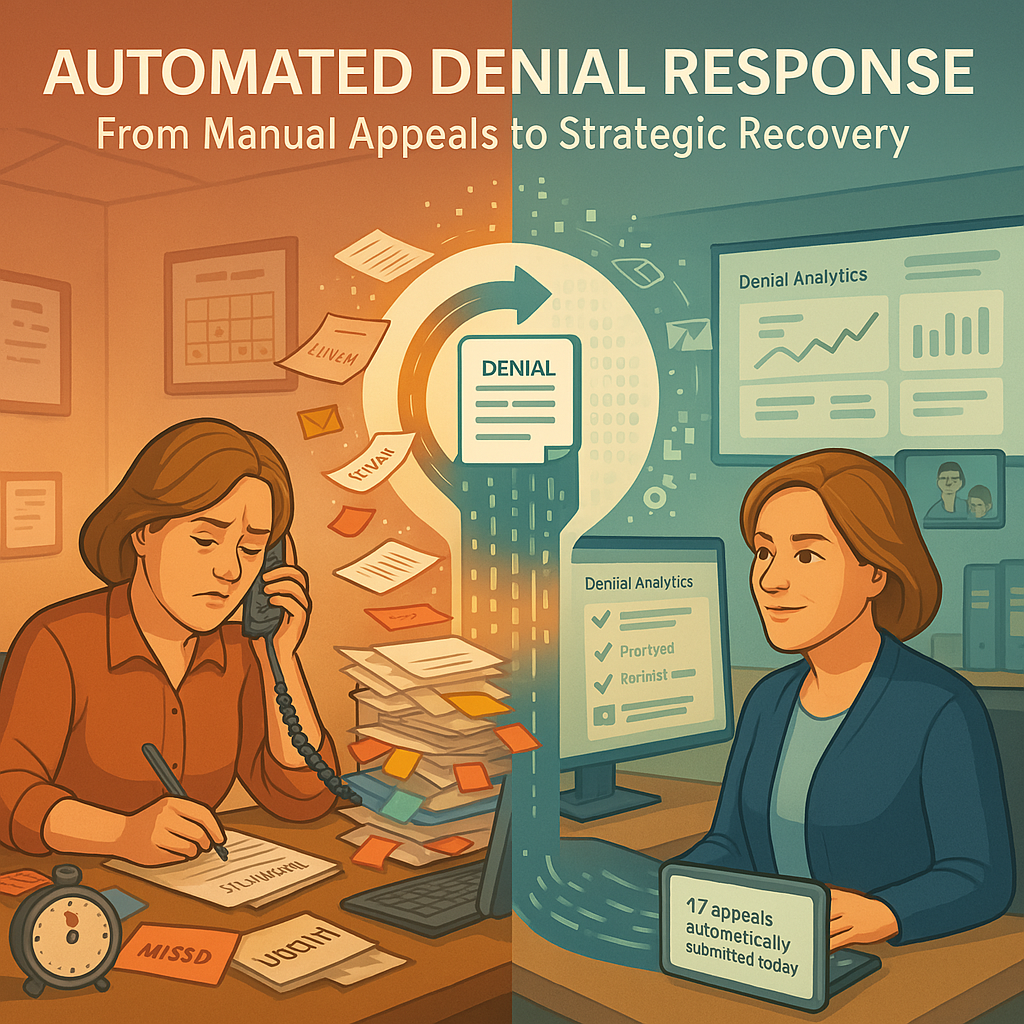The Medical Center’s Journey of Digital Transformation
In the fast-evolving world of healthcare, The Medical Center embarked on a digital transformation that focused on modernizing technology while addressing the human elements of change. This transition, especially impactful for revenue cycle managers, was approached with strategic foresight and deep empathy.
Understanding the Transformation Landscape
The Medical Center faced the challenge of updating outdated processes that were straining its operations. The primary areas of focus included streamlining patient registration, improving medical coding accuracy, and enhancing the efficiency of claims management.
Identifying Operational Challenges
To reduce operational strain, the center recognized the need to update key processes:
- Patient Registration: Streamlining the registration process to improve efficiency and patient experience.
- Medical Coding: Enhancing accuracy in coding to reduce errors and ensure proper claims management.
- Claims Management in Medical Center: Optimizing the submission and management of claims to accelerate reimbursements.
Strategic Alignment in Medical Center
The digital transformation was strategically aligned with the center’s goals of improving efficiency, accuracy, and the overall patient experience. By focusing on these areas, The Medical Center aimed to create a more responsive and effective healthcare environment.
The Human Element in Transformation in Medical Center
The staff, particularly revenue cycle managers, played a central role in this transformation. Concerns about job security, fears of automation, and anxieties over new technologies were prevalent. The Medical Center made addressing these concerns a cornerstone of its strategy, understanding that successful transformation required not just technological upgrades but also the full support and engagement of its employees.
- Staff Apprehension: Revenue cycle managers were uncertain about job security, worried about automation, and anxious about learning new technologies.
- Addressing Employee Concerns in Medical Center: The center prioritized staff concerns, recognizing that their buy-in was crucial for the transformation’s success.
- Emotional Support: Providing emotional support and reassurance helped foster a culture of trust and empowerment.
A Strategic, Phased Approach
The transformation was meticulously planned in phases to ensure a smooth transition.
- Pilot Phase:
The Medical Center began with a pilot phase in one department to test and refine digital solutions. This phase set the precedent for broader implementation and allowed the center to gauge how well staff, particularly revenue cycle managers, would adapt to the new systems. - Departmental Rollout:
Building on the pilot’s success, the transformation expanded to other departments. This gradual rollout allowed the center to scale successful practices and make necessary adjustments, always considering the impact on staff morale and workflow. - Full-Scale Implementation in Medical Center:
The final phase involved the complete adoption of new systems across the center. This marked the culmination of the digital overhaul and the beginning of a new way of working for the staff.
Empathy in Training and Development
Acknowledging the steep learning curve for revenue cycle managers, The Medical Center implemented comprehensive training programs. These programs were not just about technical skills but also served as platforms to address fears, build confidence, and transform apprehension into empowerment.
- Comprehensive Training Programs in Medical Center: Robust training was provided to equip staff with the necessary technical skills while addressing emotional needs.
- Building Confidence: Training sessions were designed to build confidence and empower staff to embrace change.
- Transforming Apprehension into Empowerment: By addressing fears directly, the center turned apprehensive staff members into active participants in the digital transformation.
Overcoming Challenges with Understanding and Support in Medical Center
The integration of new technologies with existing systems presented significant challenges. The most daunting task, however, was overcoming staff resistance to change. The Medical Center tackled this by ensuring clear communication about the benefits of the transformation and providing reassurance that technology was there to enhance their roles, not replace them.
- Clear Communication in Medical Center: Transparent communication about the transformation’s benefits was essential in overcoming resistance.
- Reassurance and Support: Ongoing support emphasized that technology was meant to augment, not replace, staff capabilities.
- Collaborative Problem-Solving: Encouraging collaboration and soliciting feedback helped the center navigate challenges effectively.
The Transformative Impact on Operations and Staff Morale
Automation in patient registration, medical coding, and claims management led to a significant reduction in errors and operational inefficiencies. More importantly, it allowed revenue cycle managers to focus on more complex, meaningful tasks, which was both professionally fulfilling and beneficial to the center’s operations.
- Error Reduction and Efficiency:
Automation reduced errors and inefficiencies, leading to smoother workflows and improved patient care. - Professional Fulfillment in Medical Center:
Revenue cycle managers shifted focus to more complex tasks, increasing job satisfaction and professional fulfillment. - Positive Morale:
The transformation positively impacted staff morale, empowering employees with new skills and a sense of contribution to the center’s success.
The Ongoing Journey: Adaptation and Continuous Improvement in Medical Center
The digital transformation at The Medical Center is an ongoing narrative. The center remains committed to continuous improvement, adapting to evolving healthcare challenges, and leveraging technology for further enhancements. This journey has shown that while technology is a powerful tool for operational efficiency, the true measure of successful transformation lies in how it impacts the people behind the processes.
- Commitment to Excellence: The center is dedicated to continuous improvement and adaptation to changing healthcare landscapes.
- Flexibility and Agility: A mindset of flexibility and agility allows the center to respond effectively to new challenges.
- Learning Culture in Medical Center: Fostering a culture of learning ensures the center remains at the forefront of healthcare advancements.
Conclusion: Balancing Technology with Compassion
The Medical Center’s journey through digital transformation serves as a beacon for other healthcare institutions. It highlights the importance of not just strategic planning and technological integration but also of empathy, understanding, and support for the staff adapting to these changes. The story of The Medical Center is a testament to how technology, when implemented with compassion and foresight, can lead to a more efficient healthcare system and a more empowered workforce.










